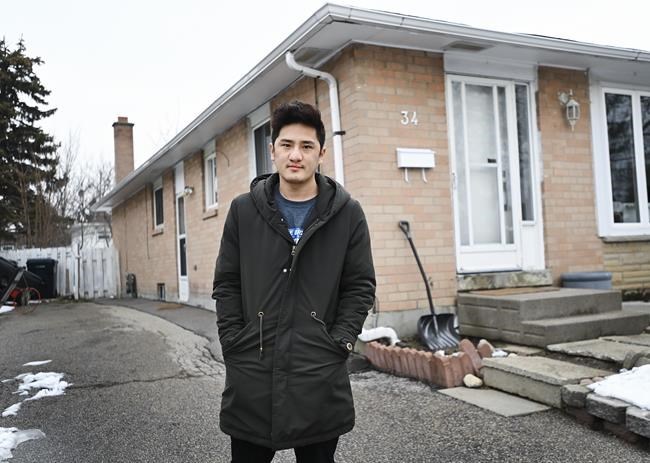TORONTO — Pooria Behrouzy was honoured to be offered a full-time job as a COVID-19 vaccine support worker at Trillium Health Partners last month.
The international student in health informatics at George Brown College was already on staff at the Mississauga, Ont., hospital network after working on an IT project, and he was eager to contribute to the rollout of the vaccine that’s brought hope during the pandemic’s increasingly grim second wave.
But a roadblock stopped Behrouzy from accepting the full-time shifts offered: as an international student, he can only work a maximum of 20 hours per week while classes are in session or he risks losing his study permit and legal status in Canada.
Behrouzy, who is now working part time at the hospital, said it’s disappointing that he can’t contribute fully.
“I can work and I can help against this COVID ... why (am I) not able to do that?” said the 42-year-old, who is from Iran. “It's very sad that I'm not fully available.”
His colleague Passang Yugyel Tenzin had a similar experience.
Tenzin, a 26-year-old graduate of health informatics currently studying in another IT program, was working on the same project at the hospital as Behrouzy before he received an offer to work on the vaccine support team as well.
The non-medical role involves providing scheduling support to ensure all available doses are administered and other administrative tasks that keep the process running smoothly.
Tenzin, who is from Bhutan, signed on for the job in a part-time capacity but noted that the 20-hour limit would make scheduling 12-hour shifts a challenge.
Working full time would be beneficial for his own education and for the health-care system that's struggling to keep up with skyrocketing COVID-19 infections, vaccinations and other important services, he said.
“We can learn more and on top of that, we can contribute more to this situation currently, because they actually need a lot of people,” Tenzin said in a phone interview.
“We can contribute a lot if we were given the opportunity to work full time.”
Ottawa temporarily lifted the restriction on international students’ work hours last April, saying the change was aimed at easing the staffing crunch in health care and other essential workplaces.
The measure expired on Aug. 31, 2020, and has not been reinstated.
The press secretary for the office of the federal immigration minister said the government is grateful for the role newcomers have played in Canada's pandemic response.
"As more students returned to regular studies in the fall of 2020, the work hour restriction was reinstated at the request of provinces, territories and educational institutions, due to concerns about students working full time while also completing a full course load," Alexander Cohen said in a statement.
Behrouzy said he doesn't understand why the limit on work hours was reinstated while the pandemic is still ongoing and hospitals need more support than ever.
“I'm available to work and all the schools, the universities and colleges are remote now, so why not extend this exception again?” he said. “It’s really disappointing.”
Trillium Health Partners said in a statement that it's continually assessing staffing needs at its COVID-19 vaccine clinics, and international students currently work on its vaccine team in administrative functions.
"THP supports and accommodates international students within the federal government requirements," it said.
Sarom Rho, who leads the Migrant Students United campaign with the Migrant Workers Alliance for Change, said the pandemic is an opportunity to ditch the restriction on work hours that advocates have long fought to remove.
Rho said she’s spoken with students in other health-care fields like nursing who are also eager to work more but are hindered by the limit on their hours.
"This kind of unfairness is totally based on status," Rho said.
"The fact that they are migrants is what is causing the limitation and the restrictions of how they can work, where they can work and when they can work, and how that work will be valued."
Migrant Students United also wants Ottawa to make work hours done in essential jobs count towards permanent residency applications. Rho said it's time to consider how work done by people on study permits is valued in Canada.
"Respecting the labour is fundamental," she said.
This report by The Canadian Press was first published Jan. 15, 2021.
Holly McKenzie-Sutter, The Canadian Press



